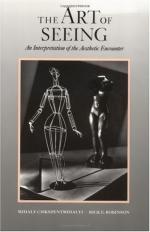|
This section contains 3,857 words (approx. 13 pages at 300 words per page) |

|
Art is an expressive business, few would deny, but this assertion has meant quite different things to the large number of thinkers who have contemplated the concept of aesthetic expression over the centuries. Certainly, the fact that art has the power to evoke potent emotions has been noticed since ancient times. Thus Plato, although perhaps more centrally concerned with the imitative or mimetic dimensions of art, worried famously about the power of poetry and tragedy to subvert the control of reason by the arousal of intense emotions (Republic 10.605c, Ion 535, Philebus 47e–50b). Rather more positively, Aristotle argued that one of the beneficial functions of tragic drama is to provide a catharsis of pity and fear in an audience that is emotionally engaged with tragic personae (Poetics, Book VIII).
The Arousal Theory
The power of art to evoke emotional responses is the basis of...
|
This section contains 3,857 words (approx. 13 pages at 300 words per page) |

|


